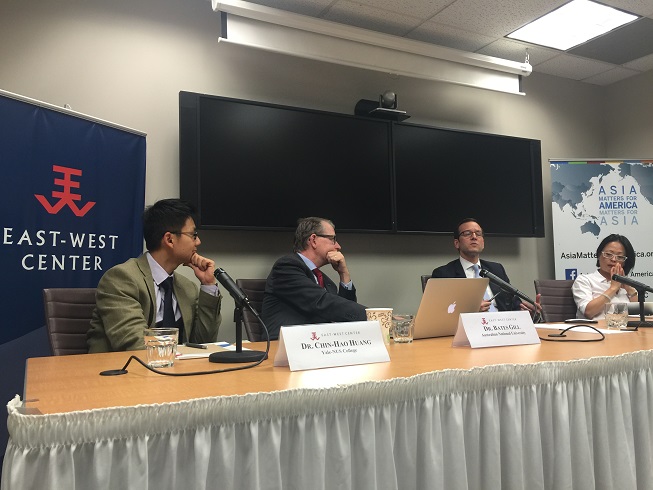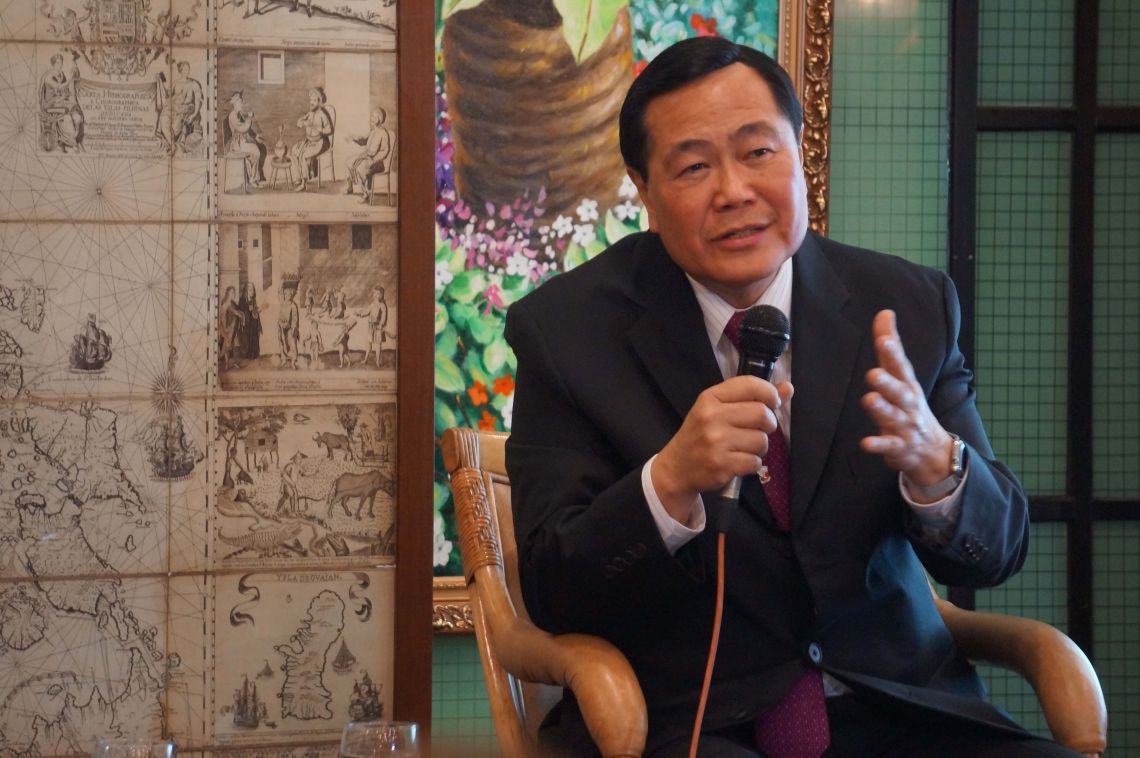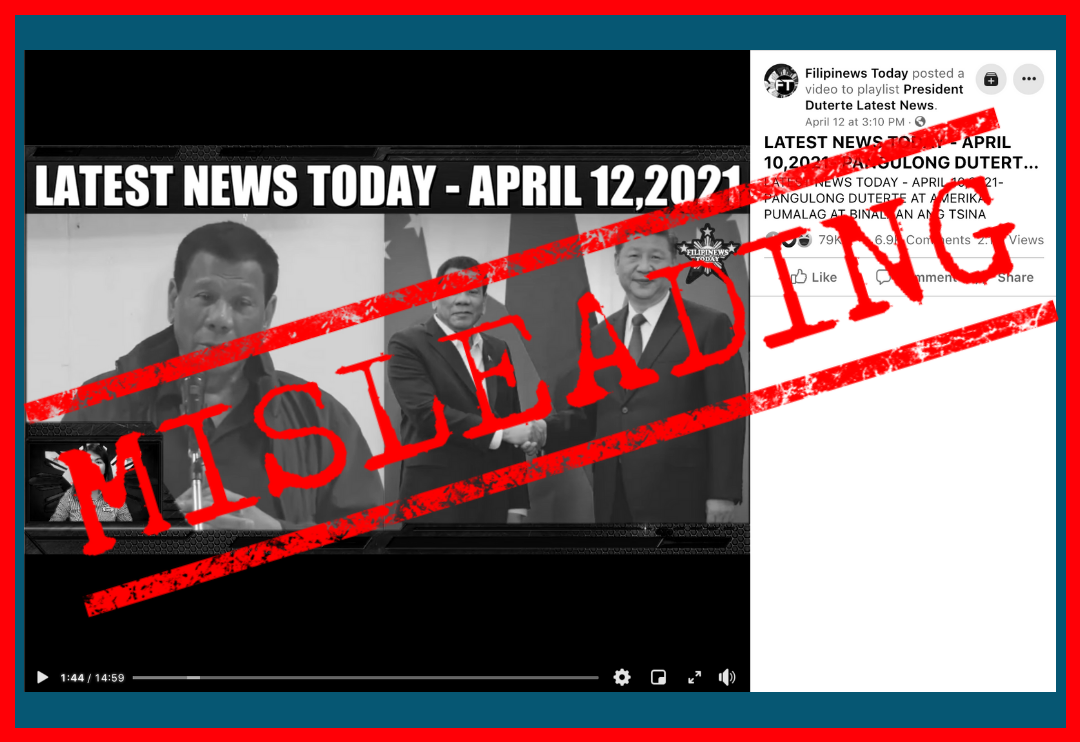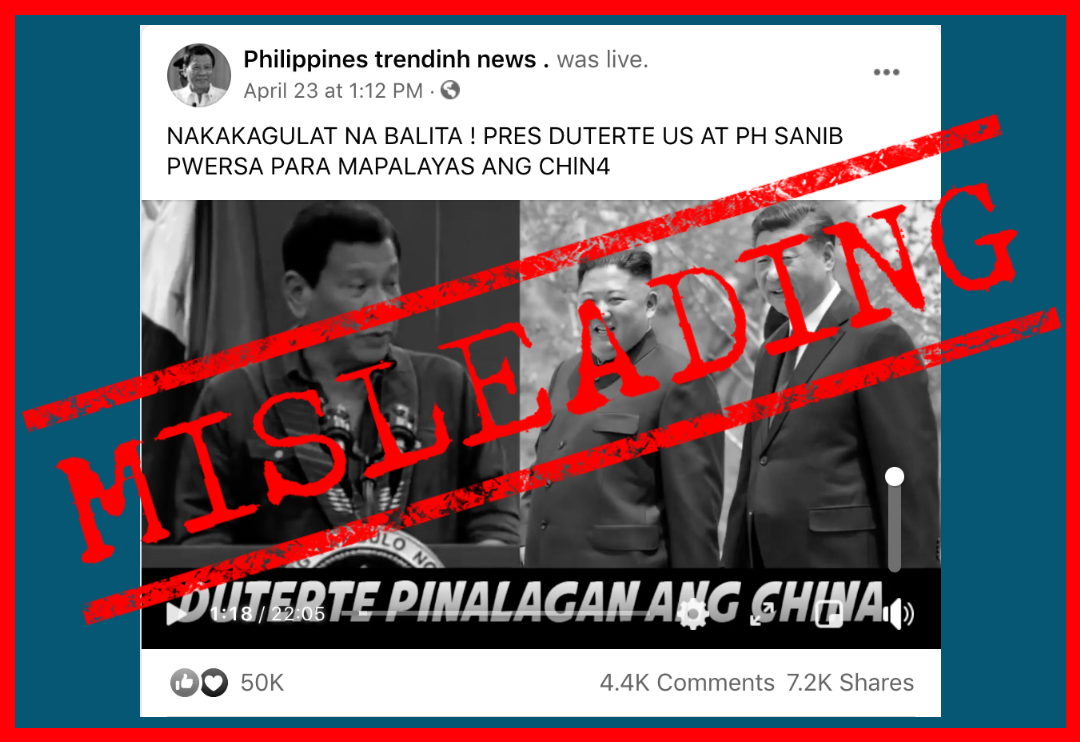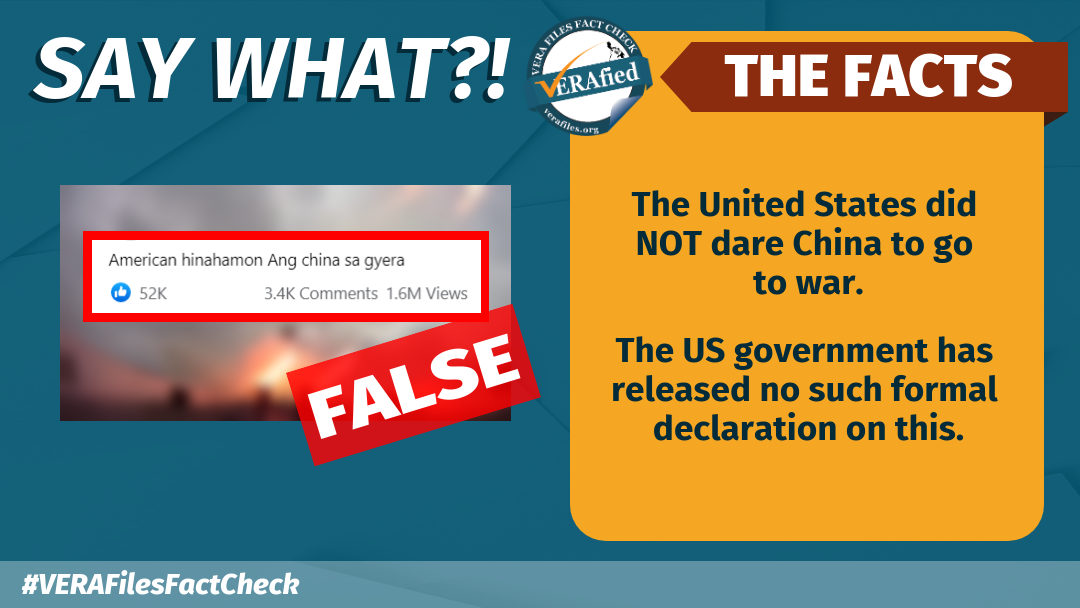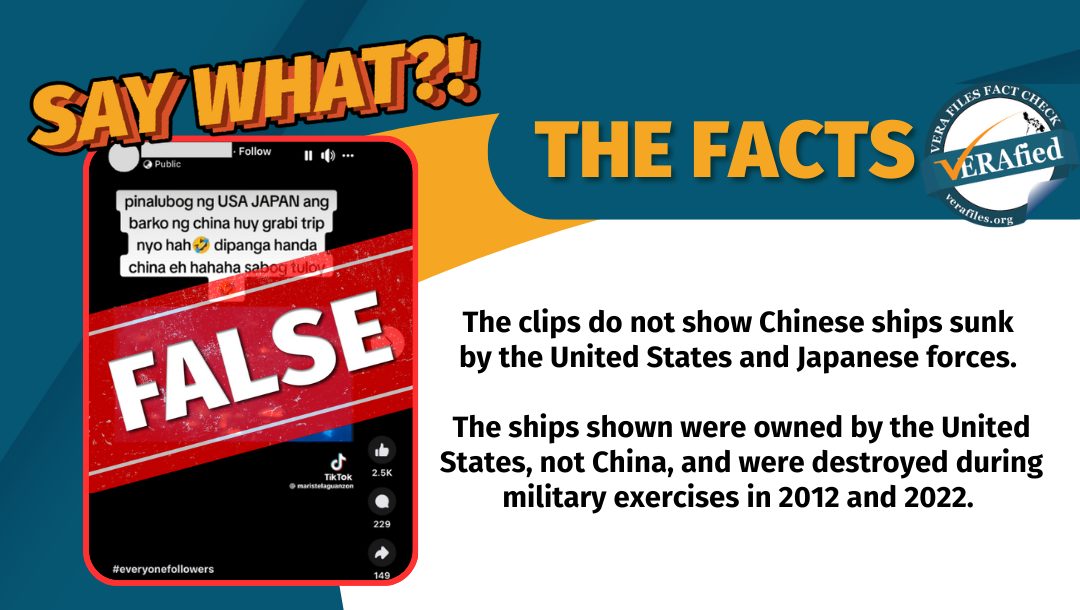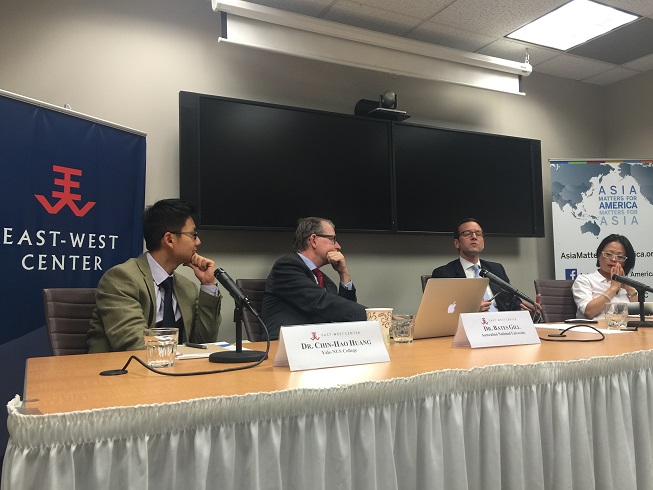
By CHARMAINE DEOGRACIAS
WASHINGTON DC – Incoming Philippine President Rodrigo Duterte is not expected to swing to China’s side opposite of the United States but will instead place the country in between the two big powers, foreign policy and defense experts said in an Asia Pacific Foreign Policy and Defense Seminar at the East West Center on last week.
Dr. Evelyn Goh, Shedden Professor of Strategic Policy Studies, Australian National University said,“The Philippines right now is very much on the side of the U.S. but it will come back closer to the mid-point. It doesn’t mean Duterte is going to move PH from US to China side. It will just bring the PH back to where it was kind of before, more along the mainstream where some Southeast Asian countries have thrived to keep the relations close to both US and China.”
Goh believes that the positioning by Duterte will make China back-off a little bit and lower the tension in PH-China relations. She said the commonly expressed regional concern had been “how the PH has stuck its neck quite far from the regional mainstream to the extent of endangering everyone else.”
During his campaign for the presidency, Duterte said he will engage in bilateral talks with China, a departure from the pro-U.S. policy undertaken by his predecessor, President Benigno Aquino III,, that the Philippines will only negotiate with China on the conflicting territorial claims in the South China Sea with other claimants namely Brunei, Malaysia, Vietnam and Taiwan.
Duterte had also said he will set aside the issue of sovereignty over the disputed islands if China would build trains around the country.
The Philippines has filed a case against China over maritime claims in the South China Sea before the United National Arbitral Court. Decision is expected first week of July.
On the other hand, Duterte slammed U.S ambassador Philip Golberg for agreeing with the Australian ambassador who expressed dismay over the vulgar remarks of the Davao city mayor about the Australian lady missionary who was raped and killed by prisoners in a Davao jail.
Dr. Evan S. Medeiros, Managing Director for Asia, Eurasia Group, said that the US would not see a better PH-China relationship “ in a zero-sum framework.”
Zero-sum is a situation in game theory in which one person’s gain is equivalent to another’s loss, so the net change in wealth or benefit is zero.
He said, the more tensions are reduced in the region, the more flexibility the Philippines or the United States has, the more space there is in the Association of Southeast Asian Nations (ASEAN), within the ASEAN Regional Forum or the East Asia Summit (EAS) to work on other issues.
“I would be encouraging Duterte to find a way to strike the right balance among these multiple and competing interests but not in a way that would cost him to compromise what he believes are Philippine security interests, “Medeiros said.
Dr. Bates Gill,professor of Asia-Pacific Strategic Studies, Australian National University also does not think Duterte would abrogate the PH-US Enhanced Defense Cooperation Agreement recently declared by the Supreme Court as constitutional. “There is no reason why he will do that.” .
Gill, Goh and Dr. Chin-Hao Huang, Assistant Professor of Political Science, Yale-NUS College are the authors of “The Dynamics of US-China-Southeast Asia Relations” for the United States Studies Centre at the University of Sydney. They analyzed that in Southeast Asia most governments are committed to preventing the emergence of any single hegemon.
“Strategic viewpoints combined with a deep interdependence Indo-Pacific countries have with China and the US means they are looking to strike a cautious balance between Beijing and Washington. Some will lean more favourably towards China and other towards the US, and the degree of preference will differ across varying interests and issues,” the report cited.
Commenting on the report, Medeiros said that Southeast Asia as a region is going through a very very substantial transition politically as in the recent elections in the Philippines and Vietnam. Other countries in the region except those two, are facing serious economic difficulties.
“For Southeast Asian nations, the ability to carry out that transition will have very big impact on their strategic choices,” Medieros said.
(Charmaine Deogracias is on a residency research study for the Asia Studies Fellowship Program of the East West Center in Washington DC.)
